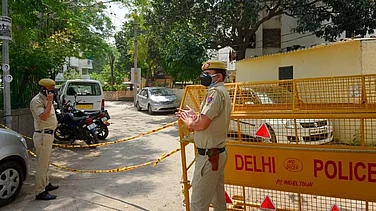Amid the raging second wave of coronavirus pandemic, the central government has issued fresh guidelines to states and asked them to enforce lockdowns and containment zones to fast-track the process of flattening the Covid curve.
In a letter, the Union Home Ministry urged states to impose restrictions on intensive, local, and focused districts and areas that match the parameters of containment zones.
The Centre said it was time to impose restrictions as soon as an area or district shows more than 10 per cent positivity rate for a period of 14 days, or when more than 60 per cent of hospital beds – both oxygen and non-oxygen beds – are filled by Covid-19 patients.
Here are the MHA guidelines:
- Night curfew – Movement banned for all, except essential services during night curfew hours. Local authorities to decide on duration.
- Social, political, cultural, religious gatherings, movies and theatres, sports, and other festival events should be banned.
- Weddings and Funerals – Allow only up to 50 people at weddings and 20 at funerals
- Gatherings – Shut all shopping complexes, movie theatres, restaurants and bars, sports complexes, gym, spas, swimming pool, and religious places.
- During curfew hours, allow essential activities of both public and private sectors.
- Public transport – All public transport like railways, metro, buses, and cabs must operate at up to 50% capacity.
- Offices can function with 50% of their staff.
- No restrictions on inter-state and intra-state movement including the transport of essential goods.
- Industrial and scientific establishments may be allowed with proper social distancing rules. Workers and other staff to be tested regularly with Rapid Antigen Tests.
- Set up a mechanism for seamless shifting of patients to hospitals.
















